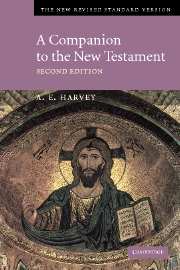Summary
To the modern reader, the word gospel denotes the kind of book that has come down to us under the names of Matthew, Mark, Luke and John. But in the early church it was some time before the word took on this meaning. It is clear from the letters of Paul that ‘the gospel’ existed before any of the ‘gospels’ came to be written. Euangelion, ‘gospel’, was the name given by the first generation of Christians to the message they had to impart. Literally, it meant ‘good news’.
If we are to judge by the accounts in the Acts of the Apostles, when this message was first preached it consisted of a fairly brief summary of those facts about Jesus of Nazareth which had caused his followers to believe that he was the promised Messiah, or Christ. For the purpose of convincing their Jewish hearers, it was doubtless on these facts that the first preachers needed to concentrate, along with the consequences of those facts for faith and conduct. But Jesus, though he wrote nothing himself, had also been a teacher, a prophet, a healer and exorcist, a miracle-worker and a controversial expositor of law and scripture. Many of his acts and sayings must have been reverently preserved in the memories of his followers and were available to give flesh to the bare bones of the original proclamation. Moreover, new questions soon began to be asked.
- Type
- Chapter
- Information
- A Companion to the New Testament , pp. 8 - 12Publisher: Cambridge University PressPrint publication year: 2004

